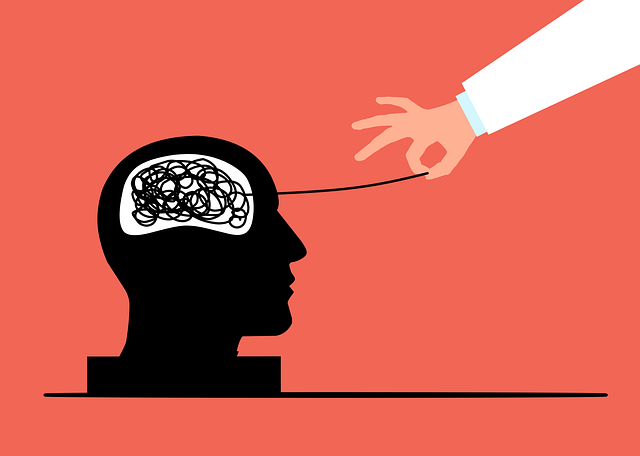The stigma surrounding mental health issues poses significant barriers to recovery, impacting individuals' well-being and driving harmful behaviors. In Northglenn, a groundbreaking approach to Conduct Disorder Therapy personalizes treatment plans, integrates emotional regulation techniques, and advocates for inclusive Mental Health Policy Analysis. This comprehensive strategy reduces stigma by fostering empathy, promoting open conversations about mental health, integrating mood management practices, and shaping public perceptions through advocacy. These efforts collectively aim to create a more understanding and supportive society.
- Understanding Stigma and Its Impact on Mental Health
- Northglenn Conduct Disorder Therapy: A Targeted Approach
- Strategies for Effective Stigma Reduction in Mental Health Care
Understanding Stigma and Its Impact on Mental Health

Stigma surrounding mental health issues is a significant barrier to individuals seeking help and recovery. It often manifests as negative attitudes, beliefs, and stereotypes about people with mental illness, leading to discrimination and social exclusion. This stigma can have profound effects on an individual’s mental well-being, exacerbating symptoms of anxiety, depression, and even encouraging behaviors that contribute to burnout, as seen in Northglenn Conduct Disorder Therapy contexts. Understanding the impact of stigma is crucial for fostering empathy and creating supportive environments where individuals feel safe to discuss their struggles openly.
The consequences of stigma extend beyond the individual, affecting healthcare systems and communities at large. Healthcare providers play a vital role in combating this issue through effective communication and empathetic practices. Incorporating stress management techniques and burnout prevention strategies can enhance their ability to connect with patients, especially those from diverse backgrounds facing unique challenges. Furthermore, emotional intelligence—the capacity to understand and manage one’s emotions and the emotions of others—is a powerful tool in reducing stigma by fostering understanding and connection among individuals navigating mental health journeys.
Northglenn Conduct Disorder Therapy: A Targeted Approach

In Northglenn, a targeted approach to Conduct Disorder Therapy is making significant strides in reducing stigma associated with mental illness. This innovative program focuses on individualizing treatment plans to cater to the unique needs of each client, thereby enhancing the effectiveness of care. By integrating evidence-based practices alongside therapeutic techniques designed for emotional regulation and anxiety relief, Northglenn Conduct Disorder Therapy aims to holistically address the root causes of conduct issues.
The initiative extends beyond therapy sessions by advocating for Mental Health Policy Analysis and Advocacy, ensuring that services are accessible, inclusive, and tailored to diverse communities. This comprehensive strategy not only supports individuals in managing their conditions but also fosters a more compassionate and understanding society. Through these efforts, Northglenn is leading the way in challenging stereotypes, promoting mental health awareness, and ultimately reducing the stigma surrounding mental illness.
Strategies for Effective Stigma Reduction in Mental Health Care

Stigma reduction efforts in mental health care require a multi-faceted approach to create a more understanding and supportive society. One effective strategy is Northglenn Conduct Disorder Therapy that targets specific behaviors while fostering empathy and compassion. By focusing on individual experiences and stories, these therapies break down stereotypes often associated with mental illness. Encouraging open conversations about mental health in schools, workplaces, and communities can also help destigmatize conditions like conduct disorders.
Incorporating practices such as Mood Management techniques and Mindfulness Meditation into daily routines can empower individuals to take control of their mental well-being. Additionally, Mental Health Policy Analysis and Advocacy plays a crucial role in shaping public perceptions by advocating for inclusive policies that support those with mental health challenges. Through education, personal narratives, and policy changes, communities can collectively work towards reducing stigma and promoting understanding.
Mental illness stigma, a significant barrier to treatment, can be effectively addressed through targeted interventions like Northglenn Conduct Disorder Therapy. By employing evidence-based strategies for stigma reduction in mental health care, we can foster an environment of understanding and support. This not only enhances access to services but also promotes improved outcomes for individuals struggling with mental health challenges. Continued efforts to dispel myths and educate communities are crucial steps towards a more inclusive and compassionate society.














